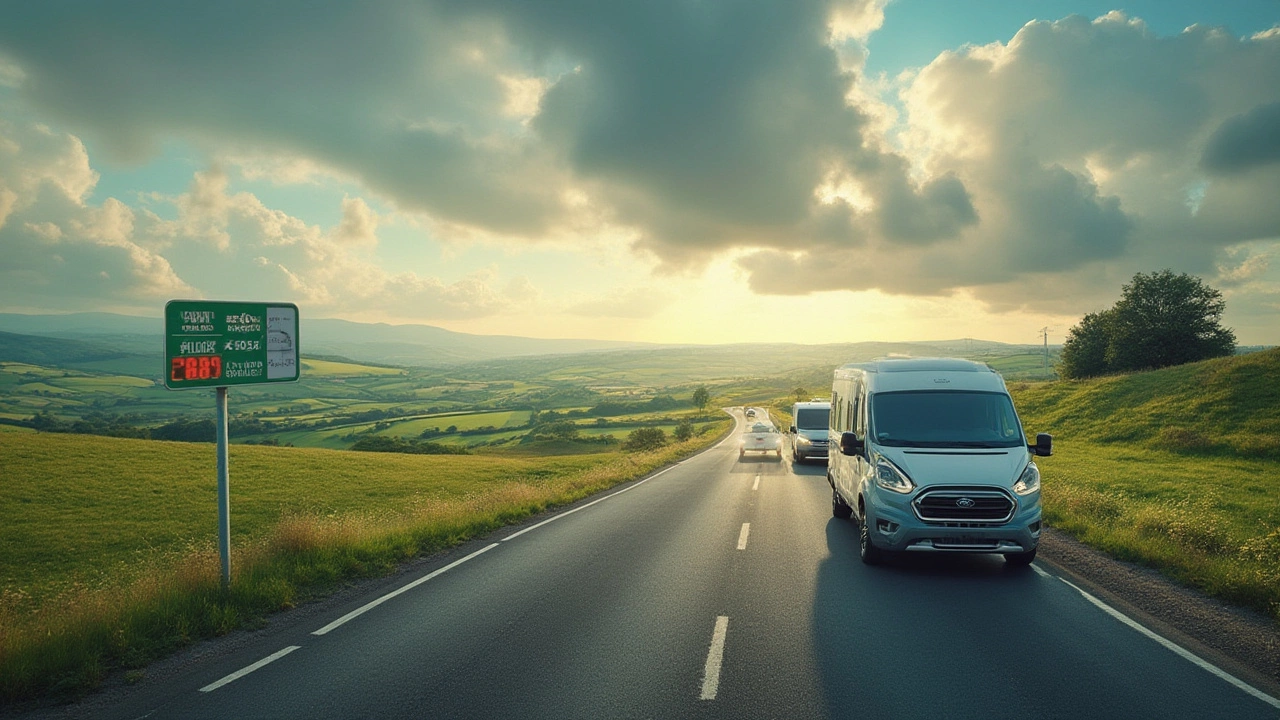Travel Costs – Keep Your Motorhome Adventure Affordable
If you love the freedom of a motorhome but hate the price tag, you’re not alone. A road trip can drain your wallet fast unless you plan where every pound goes. Below are down‑to‑earth tips that let you enjoy the open road without breaking the bank.
Hire or Buy – Which Saves More?
First big decision: rent a campervan or purchase an RV? Hiring lets you pay only for the weeks you need, includes maintenance, and avoids long‑term depreciation. A typical hire for a week on the UK coast runs £400‑£600, plus fuel. Buying a used Class C motorhome might cost £15,000‑£25,000, but you’ll add insurance, road tax, storage and surprise repairs.
Most travellers find hiring cheaper for occasional trips. If you aim for three trips a year, the hire cost stays under £2,000, while ownership quickly tops £5,000 once you add hidden expenses. Use a simple spreadsheet: Hire cost × trips per year vs Purchase price + (insurance + tax + maintenance) × years. The numbers usually point to hire for casual adventurers.
Campsites vs Hotels – Where the Real Savings Hide
A night in a budget hotel costs £50‑£80 in most UK towns. A basic campsite pitch with electric hookup is often £15‑£30. Even glamping sites, which add a touch of luxury, usually stay under £60. If you’re comfortable with a modest tent or a basic motorhome stall, you can shave off £30‑£60 per night.
Don’t forget extra fees. Some popular spots like Burke Lake or Bass Lake charge reservation fees, dump‑station fees, or extra for Wi‑Fi. Those add £5‑£10 per stay but are still far cheaper than a hotel’s nightly rate. Check the campsite’s price list ahead of time and book early to snag early‑bird discounts.
Electricity is another cost factor. Most sites charge £2‑£5 per day for a 13‑amp hook‑up. You can bring a portable solar panel to supplement power and cut the hook‑up bill. Learning how campsite electricity works (voltage, amperage, safety) helps you avoid surprise surcharges.
Fuel is the biggest moving cost. A motorhome that gets 8‑10 mpg will burn about £150‑£200 on fuel for a 1,000‑mile trip. Use a fuel‑cost calculator: miles ÷ mpg × fuel price per litre. Planning your route to include cheap fuel stations (often found on the outskirts of towns) can trim a few pounds off the total.
Beware hidden expenses that creep in after you’re on the road. Full‑time RV living brings maintenance bills—oil changes, tyre wear, winterisation—plus insurance premiums that rise with mileage. Even buying a plot to park your motorhome can cost £1,000‑£3,000 a year, plus service fees. If you only travel a few weeks a year, these costs outweigh the benefits.
To stay on budget, set a daily spending limit and track it in a notebook or phone app. Include: hire fee, fuel, campsite fees, electricity, food, and any fun extras. At the end of each day, check if you’re under or over. Small adjustments—cooking meals in the motorhome instead of eating out—add up fast.
Teesside Motorhome Adventures offers competitive hire rates, seasonal campsite deals, and a free cost‑planning guide. Use their tools to compare hire vs buy, find the cheapest campsites near the coast, and calculate your fuel spend. With a bit of planning, you’ll spend less and see more of the UK’s stunning landscapes.
Pulling a Camper vs Driving an RV: Which Is Cheaper for Your Next Road Trip?
Get the real numbers and facts about pulling a camper versus driving an RV. We break down costs, fuel, maintenance, and all the surprises you may face on the road.
